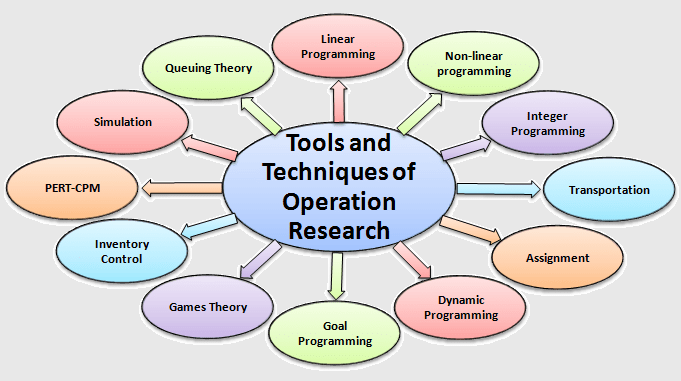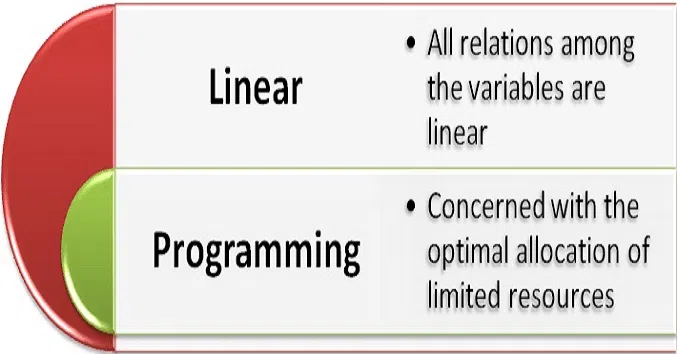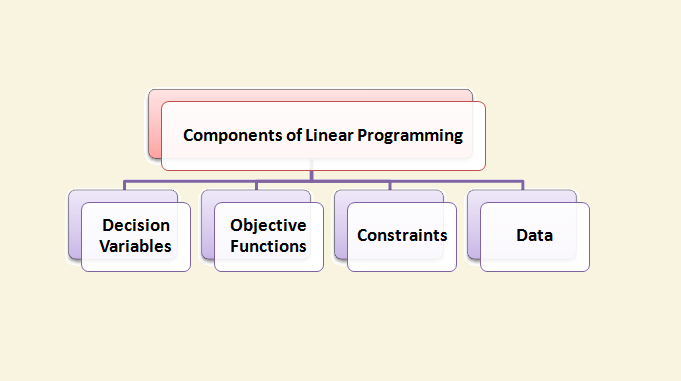
Difficulties in Operation Research:
The following are some difficulties in Operation Research:
1. Formulation of the Problem:
Most operations research techniques cannot be applied if objectives cannot be quantified or defined in explicit (typically mathematical) terms. To formulate an operations research problem, an appropriate measure of performance must be constructed, and, controlled variables, relevant uncontrolled variables and the constraints on them identified.
2. Data Collection:
Data is collected during the OR process with the goal of transforming the defined problem into a model that can later be objectively examined and analysed. Observation and standards are the two most common sources of data.
Sometimes it is very difficult for analysts to get the data. Likewise, this has made things more difficult because many organisations are data-rich but information-poor. In other words, even while all of the data exists “somewhere” and in “some form,” getting usable information from various sources is usually challenging. This is one of the reasons why information systems experts are important to teams working on any nontrivial OR project. Data collection can have a significant impact on both the problem formulation and the model design.
3. Study based on observation:
Each data source utilised to obtain information has its own disadvantages. Observed data can contain information obtained by the researcher using all of his or her senses, including vision, listening, smell, taste, feel and touch.
An observer, whether trained or untrained, can influence the behaviour of those being observed, which may affect the accuracy of the observed data. These are needed to be correctly interpreted.
4. Money and Time factor:
The first and most significant drawback of operations research is its high cost. Because basic data changes frequently, including these changes into operations research models is quite costly.
Operations research is based on mathematical equations that involve expensive technologies to create them. Experts are also required to carry out simulations.
Other problems for operational research are (a) a lack of funding, and (b) the time required to train the minimal number of researchers and consumers.
5. Human factor:
We do not include human factors, which undoubtedly play a significant role in the problems when developing quantitative answers. As a result, a study of the OR would be incomplete without a consideration of human factors.
In the study of the OR, we must consider the complexities of human relations and behaviour, as well as, at times, just psychological factors.
6. Unquantifiable factors/ non-quantifiable Factors:
The success of solutions derived by operations research is heavily influenced by a variety of factors. Only when all elements connected to a problem can be quantified, Operations Research gives a solution.
It is simple to quantify and apply quantifiable factors in operations research, but the challenge emerges when important factors are not quantifiable. Unquantifiable elements result in erroneous solutions.
Unquantifiable factors have no place in Operations Research Models. Operations research does not account for qualitative or emotional elements, both of which might be significant.
7. The difference between a Manager and an Operations Researcher:
Operations research is a specialist job that necessitates the use of a mathematician or a statistician, who may be unaware of commercial issues. Likewise, a manager may be unable to comprehend the intricate workings of Operations Research. As a result, there is a chasm between the two. Because of the traditional mindset, management itself may give a lot of resistance.
(Source – Various books of college library)
Copyrighted Material © 2019 - 2024 Prinsli.com - All rights reserved
All content on this website is copyrighted. It is prohibited to copy, publish or distribute the content and images of this website through any website, book, newspaper, software, videos, YouTube Channel or any other medium without written permission. You are not authorized to alter, obscure or remove any proprietary information, copyright or logo from this Website in any way. If any of these rules are violated, it will be strongly protested and legal action will be taken.




Be the first to comment